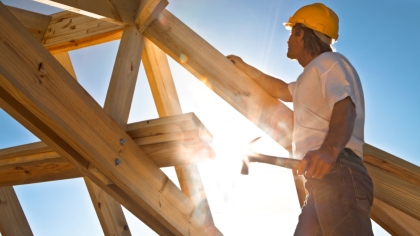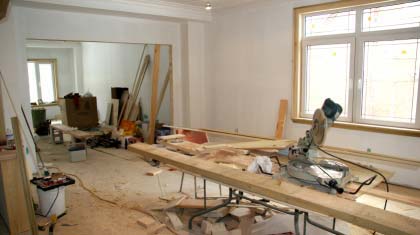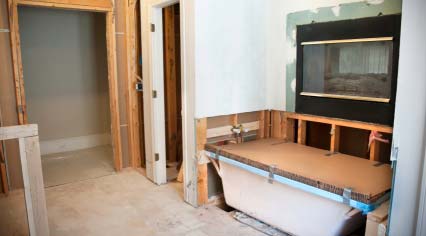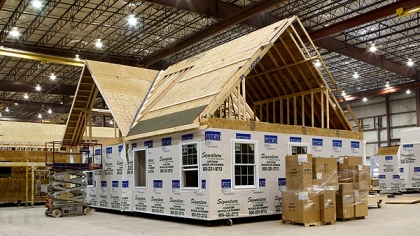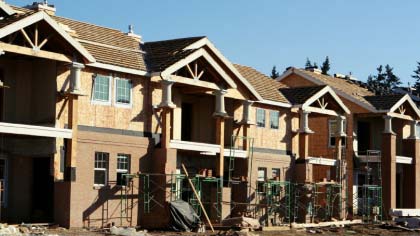Bad Credit Construction Loans
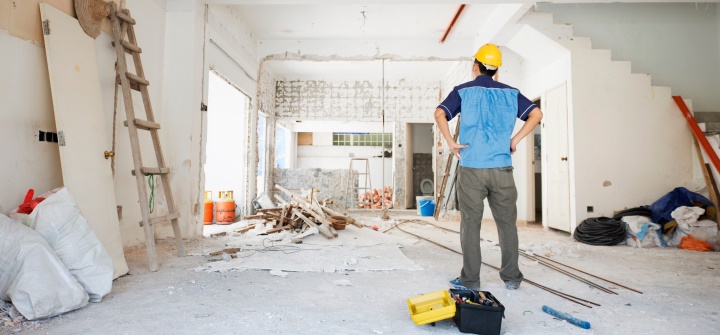
Hard Money and Bad Credit Construction Loans
Is Your Credit History Less Than Perfect?
Documenting Income a Problem? Need to Move Fast Not to Lose That Great Deal?
Then a Hard Money Loan Might be the Answer.
Hundreds of sound construction projects go unrealized because of poor credit history, the inability to document income, or time restraints associated with dealing with conventional construction loans offered by banks.
With Equity-Based Programs offered by hard money construction lenders, you can finance your dream project faster and more efficiently without getting bogged down with paperwork.
These Construction Loans for Bad Credit are called Hard Money Construction Loans or even Hard Money Fix and Flip Loans. They are used by more than just people with challenged credit. But also by developers with solid financial backgrounds who can use a traditional loan often choose a hard money loan because they can get going faster. In real estate, especially when fixing and flipping property, time is of the essence for project success.
The project could consist of, just one single family residence, a number of them or even a multi phase project.
Interest is charged on the amount drawn, and even discounted for early completion of the project.
These loans are also for investors who need a quick close of an exceptional opportunity since the approval process is much faster than a traditional mortgage. Hard Money Construction loans are typically closed within 10 to 14 days after the initial application.
Hard Money Fix and Flip Loans
A new phrase emerged as if the terminology associated with construction loans needed to be more precise. When the real estate market started to recover after the great collapse of 2008, a new phase entered the mix, Fix and Flip Loans.
Hard Money Fix and Flip, Bad Credit Fix and Flip Loans, and Bad Credit Construction loans are all simply different names for a Hard Money Construction Loan.
Hard Money Construction Lenders
Traditional construction loans offered by banks are a standard financing tool for new construction or major remodeling. Still, they can get very paperwork intensive and time-consuming.
Hard money construction lenders offer an attractive alternative investment option for people with less-than-perfect credit looking to buy a property and fix it up or build a home from the ground up.
The intention may be to sell it for a profit or hold it for rental income or occupancy.
Investment groups or hard money lenders provide hard money construction loans. This lending style isn't subjected to standard banking requirements, so lenders have more flexibility with loan terms and qualifications.
How Much Can You Borrow
You can typically borrow up to 75 to 80% of the after-improvement loan to value of the property. And up to around 90% of the loan to cost.
The property's value will be based on the Future Value Appraisal, also sometimes called after improvement value. Unlike traditional lenders, hard money lenders may not require a full-blown appraisal but estimate the after-improvement value.
Every organization will use a slightly different version of the Construction Loan Amount Calculator offered on this page. However, you should ignore the interest reserve part of the calculation, as hard money lenders do not offer interest reserve accounts.
How to Calculate Payments
Once you have established the loan amount, it is time to calculate the payments. Traditional construction to permanent loan will have interest-only payments based only on the amount drawn at any one time and probably charged against the interest reserve.
In most cases, hard money construction lenders will fund the entire construction part of the loan amount into an escrow account and disburse funds as milestones reach. Still, you will be responsible for the whole of the payment monthly.
Calculating the monthly payments and estimating the total cost of the borrowed construction loan is a critical step in calculating your potential profit. Visit our Construction Loan Calculators page and use the construction loan payment calculator to estimate your payments and reserve requirements.
Qualifying For Hard Money Construction Loan
Traditional construction and construction to permanent lenders offer fully documented income loans and stated income or so-called bank statement construction loans. Compared with a hard money construction lender, this can involve a good deal more documentation.
Typically, a hard money construction lender requires only a basic application and a copy of your current bank statements. However, they may require more bank statements or a proper explanation if your account shows a relatively large deposit.
It is highly recommended that before you make offers and create commitments you read the Qualifying for a Construction Loan page.
Cash Requirements
Your available cash balance after closing escrow, plays an important role. The lender would like to see up to 6 months' worth of funds calculated based on your total existing housing and other payments plus the construction loan payments.
Managing the cash is a critical aspect of a construction project. You must bear in mind that all construction loans, hard money or traditional, are reimbursement loans. You will be reimbursed for expenses as you reach milestones. You therefore must have a clear understanding with your contractor as to who pays for what and how and when payments are due.
One more critical issue is that construction lenders will hold the last 10% or so of the payments until final permits are signed off and occupancy permit is issued.
Credit Score Requirements
Credit score requirements for traditional construction lenders typically start at a FICO credit score of 720 and higher for stated income and bank statement loans.
By contrast, hard money construction lenders can fund a project with a credit score as low as 620.

